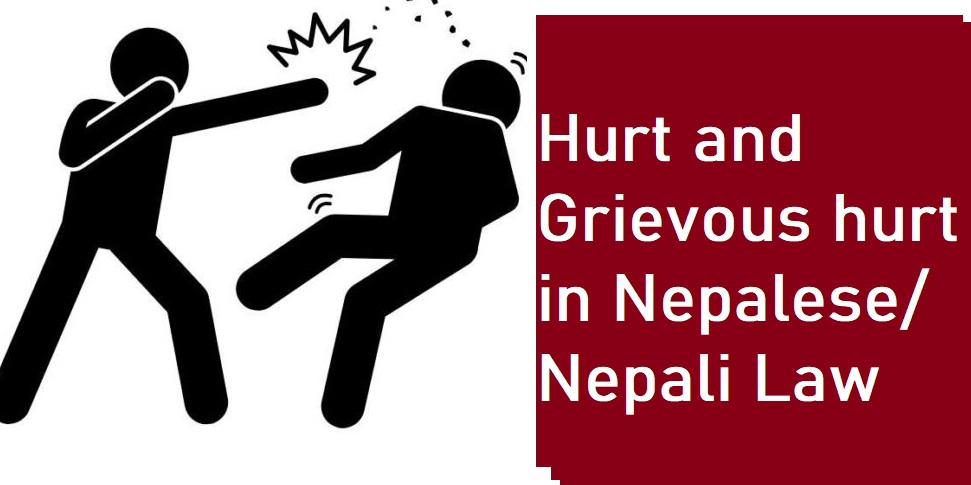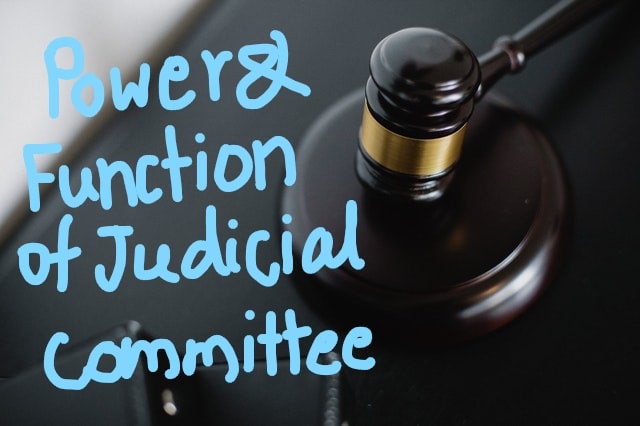Hurt might described as the substantial suffering which is brought about by actual contact with the body by a forced assault. There is no severe distinction between attack and hurt.
Hurt: As per section 191 (2) of the National Penal Code, 2017 (hereinafter “NPC”), a person who does any or some of the following action to another person deemed to cause hurt;
- Any act by any kind of physically pain is caused,
- Any act by a disease is transferred, or
- Any other act by which illness is caused.
This part doesn’t describe the offense of causing hurt. It describes only the term hurt and doesn’t illustrate the conditions under which it very well might be caused.
Bodily Pain: The agony should be in essence and not mental. An individual, causing bodily pain to another, is said to cause ‘hurt’.[i] Where the immediate consequence of a demonstration is the causing of bodily torment it is harmed whatever be the methods utilized to cause it.
The disease is transferred: Infectious diseases can be transmitted from person to person by direct or indirect make contact. It’s indicated all kinds of transmitted diseases.
Infirmity is caused: If a person does any action against another person caused injured, it also defines as hurt. The term “infirmity” means the state of any part of the body is incapable of functioning normally, and this term also includes mental infirmity.[ii]
Grievous hurt
Common hurt is also punishable hurt. Grievous hurt is a serious or violent type of hurt or battery.
In the grievous and violent hurt the punishment both imprisonment and fine should be determine as per seriousness or grievousness of the wound, injuries and its height.
According to section 192 (3) NPC, where any individual does any act intentionally of causing hurt to another person, which results as follows, that person is consider offenders of causing grievous hurt;
(a) Making blind by deprivation of the sight of, or by breaking, either eye,
(b) Deprivation of smelling power of the nose,
(c) Deprivation of hearing power of either ear,
(d) Deprivation of speaking power of the tongue,
(e) Cutting of woman’s breast,
(f) Making emasculation of male and female (making female infertile or male impotent),
(g) Privation of the backbone, …, hand, leg or joint of such organ by breaking, fracturing, dislocating it,
(h) Any hurt which causes the sufferer to be unable to perform his or her professional work.”[iii]
In addition, where any act of hurt, though not causing grievous hurt immediately, results subsequently in the consequence referred as mentioned above, it shall be deemed to have caused grievous hurt[iv] and he/she may liable for punishment of grievous hurt.
The person who commits the offense of grievous hurt, he/might be liable to a sentence of imprisonment for a term not exceeding ten years and a fine not exceeding one hundred thousand rupees.[v]
But in the case of so causing grievous hurt to either of the organs performing the same function that it becomes dysfunctional, the offender might be liable to half the sentence specified in grievous hurt mentioned punishment.
Similarly, where the wound caused by grievous hurt gets so cured as to reinstate the organ, the offender might be liable to a sentence of imprisonment for up to three years and a fine up to thirty thousand rupees.
Intention or Knowledge
Intention or knowledge is the important factor in causing hurt or grievous hurt to an individual. An individual who intentionally planned to purpose shock to somebody with a weak coronary heart and succeeds in doing so is said to have caused hurt.
Provocation
In some offenses of grievous hurt due to another cause such as provocation. A person who causes hurt in any of the where the offender while being deprived of the power of self-control by grave and sudden provocation, causes hurt to the person who gave such provocation or to any other person by a mistake of fact or happens to cause injury to another person by accident, he/she shall reduce the punishment.[vi]
He/she is liable a sentence of imprisonment for a term not exceeding two years or a fine not exceeding twenty thousand rupees or both the sentences in the case of grievous hurt, and to a sentence of imprisonment for a term not exceeding one year or a fine not exceeding ten thousand rupees or both the sentences in the case of any other kind of hurt.
But where the offender causes hurt upon being provoked by anything done in obedience to the law or in the exercise of the right of private defense or any anything done or intended to be done by a public servant in the exercise of his or her official duties, or the offender himself or herself gives provocation to another with intent to cause any harm to anyone and anything done by that other person upon being so provoked causes hurt to any person or the offender in the exercise in good faith of the right of private defense exceeds the limit of such power and causes injury to any person or the hurt is caused to any person instantly in the heat of passion upon a sudden quarrel, in such condition provocation is not applicable.
Grievous hurt due recklessness or negligence
In some cases, a person caused grievous hurt due to recklessness or negligence of the offenders. If a person caused hurt or grievous hurt or another injury to anyone by doing a reckless or negligent act, he/she might be liable to a sentence of imprisonment for a term not exceeding two years or a fine not exceeding twenty thousand rupees or both the sentences, in the case of a grievous hurt caused by a reckless act, and a sentence of imprisonment for a term not exceeding one year or a fine not exceeding ten thousand rupees or both the sentences.
In the case of any other kind of injury caused by a reckless act, and a sentence of imprisonment for a term not exceeding six months or a fine not exceeding five thousand rupees or both the sentences in the case of the commission of such offense by a negligent act.[vii]
Conclusion
As showing above, ‘Hurt’ is injuring, mischief, torment, throbbing, inconvenience, hurting, throbbing, stinging, aches with the knowledge or intentionally and Grievous is the serious or violent situation of hurt.
Reference
[i] National Penal Code, 2017, section 191(2) (a)
[ii] National Penal Code, 2017 Section 191(2) Explanation.
[iii] National Penal Code, 2017 Section 192(2)
[iv] National Penal Code, 2017 Section 192(3)
[v] National Penal Code, 2017 Section 192(5)
[vi] National Penal Code, 2017 Section 194
[vii] National Penal Code, 2017 Section 195
 Nepali Law A complete legal information portal
Nepali Law A complete legal information portal

